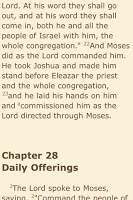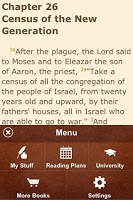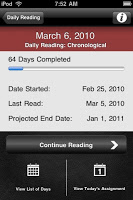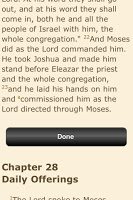At the Ministry Fair
Across the bustle of the Ministry Fair in the Fellowship Hall I saw him. The young man—I’ll call him Roger—looked like he was about to cry or had been crying. I walked over to him and asked, “Do you want to talk?”
Tearing up a bit, he breathed deeply and nodded. I led him out to a quiet area near the classrooms. “What’s doing?” And he told me…
Groundwork of Loving and Knowing
First, to understand why he would have nodded assent, we need to back up a bit. He was willing to talk to me because I had spent a breakfast with him talking about questions of denominational difference and theology that he had after being with some friends at the recent Franklin Graham Festival. Backing up further, the reason his parents suggested he talk to me about them was not just because I am an elder in the church, but more because I had shown an interest in him in a very simple way.
Months earlier, during fellowship time between services, I noticed Roger, a teenager I’d known since he was in my 3-year-old Sunday School class. I noticed a brace on his leg, and asked him about it. He told me of a stress fracture that wasn’t healing and I saw something else in his eyes. “So, how are you doing with this?” Getting somewhat somber, he admitted, “Not very well.” He went on to talk of his love of soccer. This was going to take him out, for perhaps the whole season. We talked a bit more, and asked him if he wanted the elders to pray for and anoint him. He’d not heard of that, but he agreed. Then I asked if I could, and then did, pray for him.
Months later, at his request and the suggestion of his parents, came the “theological discussion.” I answered his questions, but explored his thoughts on the subject, with questions, such as, “What do you think the Bible says about that?” and, “How did you feel when they said that their youth leader could pray over you and tell you your spiritual gifts?” (The insightful answer: “How could he without even taking time to know anything about me?”) He also told me, briefly, of a girl he had been seeing, but who recently was treating him poorly.
Outside the Fellowship HallThis brings us back to the conversation outside the Fellowship Hall. He was having a great deal of trouble at worship. He had broken up with the girl he mentioned. He used to worship with her and pray with her. She was out of his life, and he was miserable. Worship was a trial, a chore, because it reminded him too much of her and the loss.
We talked some more. That morning, in worship, we had sung “Blessed Be Your Name”—Matt Redman’s version. We talked about the biblical truths in it. We agreed that we need to sing the song “In the land that is plentiful, Where Your streams of abundance flow,” and “When the world’s ‘all as it should be’,” so that we can remember when we’re “found in the desert place,” when we “walk through the wilderness,” “On the road marked with suffering, Though there’s pain in the offering.” We used that song, sung earlier that morning, to remind us of what we know is true. And it gave him something solid on which to stand and rest.
Jesus, the Good ShepherdIn the Gospel of John, chapter 10, we read these words of Jesus:
I am the good shepherd. The good shepherd lays down his life for the sheep. … I am the good shepherd. I know my own and my own know me, just as the Father knows me and I know the Father; and I lay down my life for the sheep. [John 10: 11. 14-15 (ESV)]
We in the Church, especially those of us called to be shepherds (including counselors, and—of course—pastors), must surely look to this passage, maybe chief among others, for clues about what it means to be a shepherd. [Jesus did not say I am the Good King, I am the Good Prophet, I am the Good Priest, though he was all of those.] A shepherd lays down his life. A shepherd knows his sheep. A shepherd is known by the sheep. If we are to shepherd—to rule by shepherding, lead by shepherding, oversee by shepherding—we must lay down our lives for the sheep. We must know our sheep and be known.
Likewise, if we are to be members of Christ’s church as He commands—to serve one another, to love one another, to submit to one another, to care for one another, to be kind to one another, to teach, encourage, and admonish one another, to stir up one another to love and good works, and to confess sins to and pray for one another—we really do need to know one another.
Loving and Knowing, to Speaking and DoingI did nothing extraordinary in this young man’s life. I took time to notice him. Truly, it was hard not to: there was a brace on his leg. I took the time to ask a good (an obvious!) question. I observed his response and asked another question or two, because I cared. And I acted (setting up a time for anointing, setting up further meetings). It only took a few minutes, but it did require me to actually see him and stop. Later, when we met, I was not satisfied with just giving him my answers to his questions. We talked. I asked questions. I got to know him better. Finally (actually, there is probably no “finally” about it), I saw him that day in the fellowship hall, and I asked a five-worded question that is apparently not asked enough.
“Do You Want to Talk?”There is no magic. I did not have to go to seminary. All I needed was functioning ears, eyes, and a reliance on the Holy Spirit—and to remember that it’s not about me. It’s about Christ and His Body. Most of us have been given everything we need to love and serve each other on behalf of Christ, and in that loving and serving to be Jesus to others.
We need see beyond ourselves. Our flesh—our sin nature—gets in the way, as does the world. But, in Christ we can have victory over both.
We have to be intentional about relationships. We have to work to mortify our self-centeredness, and remind ourselves that the Christian life is one of self-death. But, the paradox of the gospel is that to die is to live, to serve is to be a king, and to give is to truly receive.
We also have to be intentional about the questions we ask—not brilliant, just thoughtful. I asked Roger questions like: What’s going on? How do you feel about the situation (and other things that came up)? Where are you with those things? What do you think God is up to? How might you react differently? How can you get there?
And we have to be intentional about our motives. We are not entering into each other’s lives with a curiosity for the morbid or ugly. We do it because we are His Body, bound together by His love, and commanded, expected, and empowered to love one another as He has loved us. We cannot do that unless we know and are known. When we intentionally seek to obey, when we are open to being known and other-centered enough to know, the love of Christ works through us toward others. The church is strengthened, and individually we become more and more transformed into His image.





